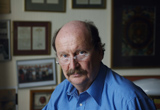 Evidence-based medicine is rarely concerned with the biological plausibility of medical interventions. This, I argue, may be a weakness, particularly when assessing the value of alternative medicine (AM). Many basic assumptions of AM fly in the face of our knowledge about nature, physics, physiology, pathophysiology or even common sense. A few examples to back up this seemingly bold statement may suffice: Iridologists believe that certain sections of the iris somehow correspond to inner organs, reflexologists assume that the same is true for the soles of our feet, traditional acupuncturists are convinced that some form of “life-energy” flows in meridians through our body, spiritual healers claim to channel “healing-energy” into a patient’s body, homeopaths think that endlessly diluting a substance renders it not less but more potent, chiropractors postulate that “subluxations” of the vertebrae are the cause of most human illness, etc, etc.
Evidence-based medicine is rarely concerned with the biological plausibility of medical interventions. This, I argue, may be a weakness, particularly when assessing the value of alternative medicine (AM). Many basic assumptions of AM fly in the face of our knowledge about nature, physics, physiology, pathophysiology or even common sense. A few examples to back up this seemingly bold statement may suffice: Iridologists believe that certain sections of the iris somehow correspond to inner organs, reflexologists assume that the same is true for the soles of our feet, traditional acupuncturists are convinced that some form of “life-energy” flows in meridians through our body, spiritual healers claim to channel “healing-energy” into a patient’s body, homeopaths think that endlessly diluting a substance renders it not less but more potent, chiropractors postulate that “subluxations” of the vertebrae are the cause of most human illness, etc, etc.
Many branches of AM are thus built on concepts that are not biologically plausible, and the concepts of one branch of AM may not be compatible with or in direct contradiction to those of another branch of AM. Even within one area of AM, one particular “school” may adhere to concepts that are incompatible with those of another. For instance, traditional and “Western” acupuncturists are in overt disagreement over the alleged mode of action of their treatments.
Proponents of AM are rarely bothered by such problems and there is surprisingly little debate about such issues within AM; I still have to meet a homeopath, for instance, who finds the chiropractic “subluxation” theory of disease objectionable. It would be arrogant, AM-proponents tend to argue, to assume that we already understand all the secrets and laws of nature. They are confident that, as our knowledge grows, so will our understanding of the various concepts that underpin AM [1, 2]. In other words, many AM-enthusiasts are certain that they are ahead of their time and that the implausibilities of today will become the plausibilities of tomorrow.
This, however, is a naïve and unjustified expectation borne out of wishful thinking rather than rational analysis. In many instances, we do not only fail to understand a mechanism of action of a particular form of AM or have insufficient knowledge to explain this or that assumption. More often than not, we can be reasonably sure that no mechanism or explanation exist which would be in line with the laws of nature. For instance, when challenged about the biological implausibility of their remedies, homeopaths often refer to the fact that aspirin has helped many patients, long before anybody understood its mode of action. This analogy is offered in an attempt to convince us that, once research has uncovered the mechanisms of homeopathy, all will be perfectly rational. Our present lack of understanding of homeopathy is thus presented as a mere temporary deficit which will disappear as soon as researchers have discovered its mode of action.
This argument is, of course, grossly misleading. We have always been certain that there would be a plausible mechanism to explain how aspirin works. It was just a question of conducting the relevant research to find it. With homeopathy, we are equally sure that there cannot be a plausible explanation, and that it is not a question of time until we discover it.
All of this leads to the following question: if a treatment is utterly implausible, should we invest research funds in it? The answer, I think, is NO. It seems obvious to me that our money and efforts are far more efficiently spent on therapies which are underpinned by biological plausibility. This strategy would clearly be less wasteful and less risky. In other words, we ignore or neglect the plausibility factor at our peril.
References
(1) Tonelli MR, Callahan TC. Why alternative medicine cannot be evidence-based. Acad Med 2001; 76:1213-1220.
(2) Barry CA. The role of evidence in alternative medicine: contrasting biomedical and anthropological approaches. Soc Sci Med 2006; 62:2646-2657.
Edzard Ernst is emeritus professor of complementary medicine at the Peninsula Medical School, Exeter.